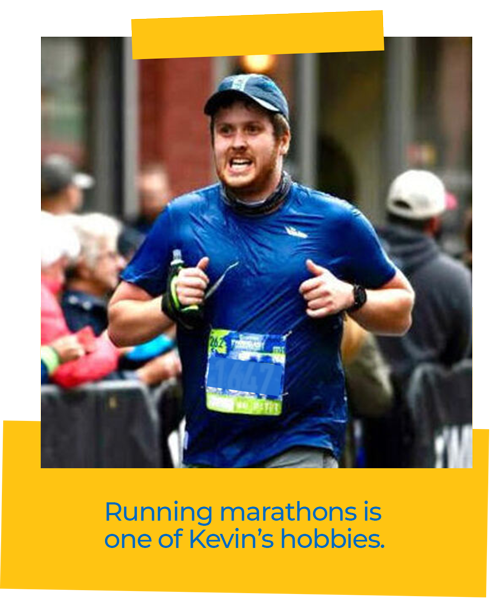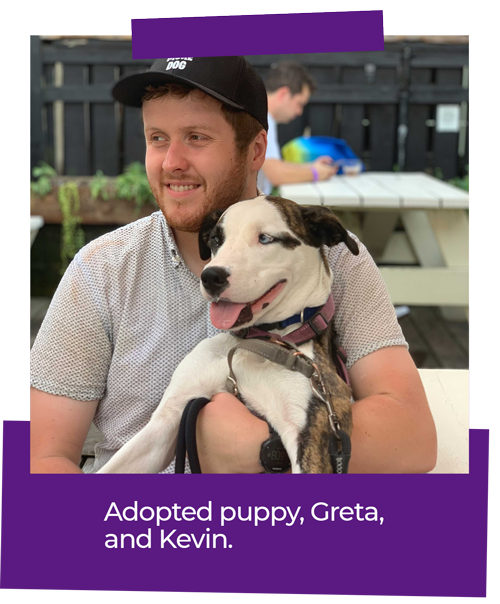
How to Become a Solution Architect in 2022
Published on by Rebecca Rowe
Career Series: How to Become a Solution Architect in 2022
Interview with Kevin Staples
We sat down with Kevin Staples, a Solution Architect at Myers-Holum, to get his take on how to become a solution architect and excel at it, what he does in his spare time and what the future holds.

Solution architects play a critical role in designing the solution architecture and making sure this aligns with the organization's business needs and goals. Gaining experience in NetSuite ERP implementation as a consultant is one route to success as an architect.
What's the path that led you to be a NetSuite consultant?
I was in college and had done an internship at a big investment bank. I realized that wasn’t for me. Myers-Holum was interviewing on campus, and I liked the idea of learning about technologies and business systems. After I got all the certifications, I worked with a fashion company to implement their ERP. I went on to focus on workflows and custom functionality – eventually leading projects from end-to-end. I really enjoyed the integration side and bringing large scale multi-country NetSuite implementations to launch.
You also had a stint working directly on the customer side, right?
Yes, I worked for BarkBox from August 2019 through the end of last month. When I came onboard, I helped with integrations, streamlining communications, getting everyone using the system, and optimizing inventory management. We also launched a new line of business run exclusively through NetSuite. Understanding the full life cycle, getting user buy-in, and identifying operational efficiencies were all very important to me.
How did you decide to become a solution architect?
What I really enjoy most given my experience now is scoping out new greenfield opportunities, working on the high-level architecture. I figure out how to best connect systems, making it seamless, and exploring this with customers. Especially with the larger scale architecture, it’s about outlining a vision and then seeing it get implemented. Solution architecture allows me to combine my experience as a consultant on the implementation side with my experience on the client side. I've been the in-house systems expert so I’ve been in their shoes.
What are the important skills for becoming a solution architect?
The first thing is good attention to detail, the ability to listen to what your clients say, and understand what they looking for in an ERP system. Because while it’s crucial to be familiar with the technology, it is just as important to be familiar with the business processes. Every single company you work with is ultimately the expert in their own area. So, it's crucial to really listen to them, document their requirements, and understand what their overall process needs to be. That’s the first big step.
The next step is having an overall familiarity with NetSuite, what its ins and outs are, and understanding where it makes sense to work with native NetSuite functionality and when it makes sense for integrations or customizations. Understanding where their pain points are in their financial system or at their warehouse for instance and addressing those with the best solution for their needs.
What advice would you give to a college graduate interested in consulting or solution architecture as a career path?
One of the really great things about consulting is that it gives you a breadth of experience. You will get to see a lot of different things. That's useful. You learn quickly how a bunch of different companies work and gain a lot of both industry-specific knowledge and technology skills. I feel like within my first two years of consulting, I gained four years of experience, just because I worked on a wide variety of projects.
Do you have any advice for a more seasoned consultant?
In terms of someone experienced, Myers-Holum is especially great because it’s a place where folks are really interested in your skillset. You get to work with a lot of different customers, on large projects that you might not have gotten to work on before. Myers-Holum combines a startup kind of grittiness where we’re about getting things done efficiently with a huge knowledge base and infrastructure to take on large deals so you get to work on top tier projects. It’s the best of both worlds.
Tell us a little bit about what you do outside of work.
There are three big things I do outside of work. First, I'm an avid runner. I’ve run four marathons, and I'll be running my fifth one, the Berlin Marathon in September. I'm very excited for that.
Secondly, we adopted a puppy, Greta, during that pandemic and she’s a real joy to have. She's a ball of fun, and I love spending time with her. Finally, I grew up playing a bunch of sports—one of them was soccer. During the pandemic, I really leaned into it, especially following the Premier League. I’m now an avid fan and enjoy watching games, reading articles, and listening to podcasts. Go Tottenham!





